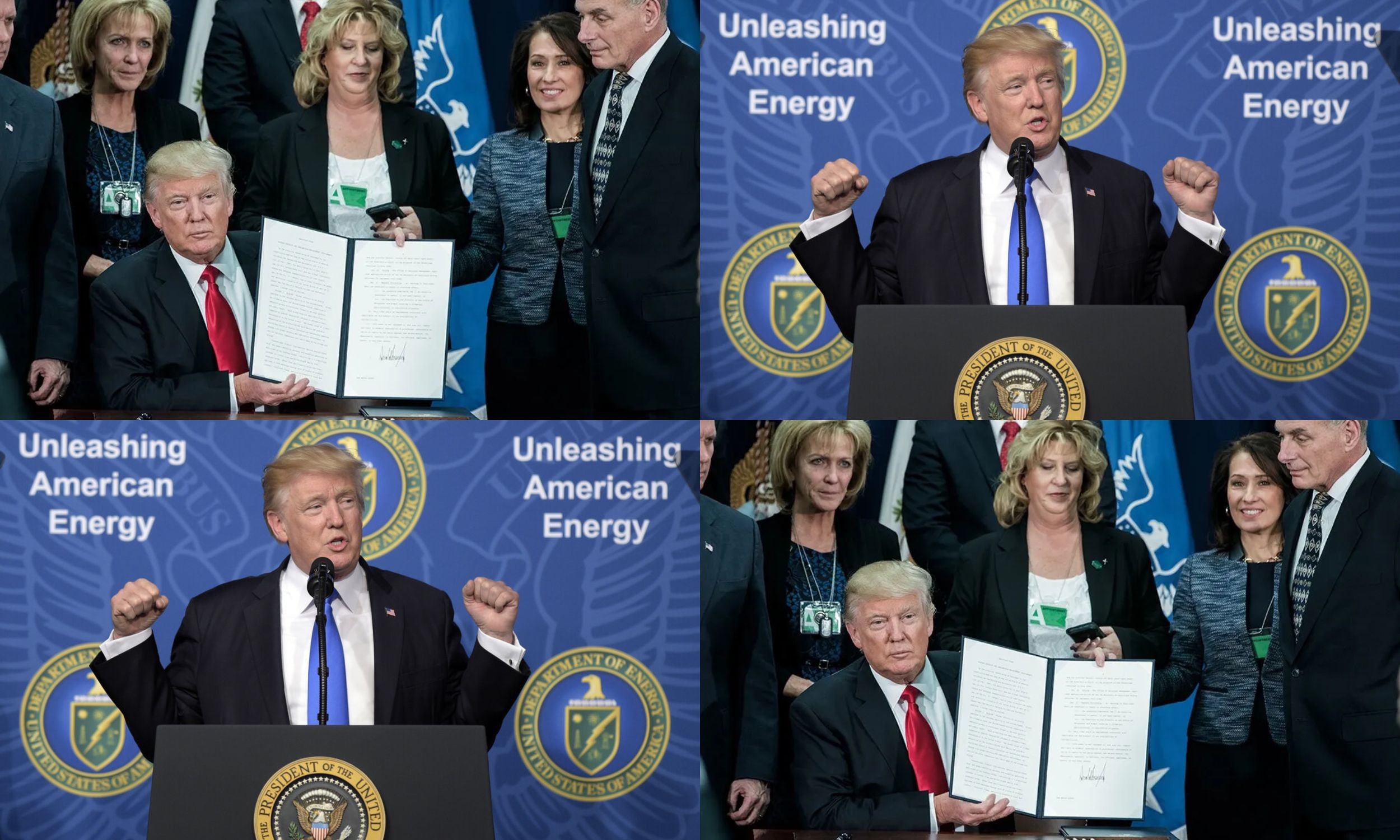The victory of former President Trump has sparked excitement in the fossil fuel and mining sectors, who expect a more favorable regulatory climate under his upcoming administration. Industry leaders anticipate the opportunity for policies such as long-delayed energy permitting reforms to finally gain traction.
As he campaigned for a second term, Trump, who previously withdrew from the Paris Climate Agreement and rolled back various energy and environmental regulations, expressed his intention to continue this approach if re-elected.
He also promised to ramp up domestic oil and gas production, open new drilling lands, and criticized renewable energy sources like wind and solar, calling for an end to “insane wind subsidies” on his campaign platform.

The oil and gas industry has already thrown its support behind his 2024 campaign, contributing over $14 million toward his reelection effort. Following his win, the sector remains hopeful that Trump will follow through on his promises and reverse regulations enacted by the Biden administration.
Amanda Eversole, Chief Operating Officer at the American Petroleum Institute, told The Hill that there are specific actions they hope Trump’s team will prioritize, such as lifting the Environmental Protection Agency’s (EPA) “tailpipe mandates” that push automakers toward hybrid and electric vehicles.
These regulations were frequently discussed during the campaign, especially in Michigan, where Trump defeated Vice President Harris, but Rep. Elissa Slotkin (D-Mich.) triumphed in the race for Senate.
Eversole emphasized the urgency of halting what she deemed a flawed approach, expressing confidence that the administration could act swiftly and, if necessary, anticipate support from the courts for the industry’s cause.
The National Mining Association, which advocates for the mining industry, is similarly optimistic about the incoming administration’s stance on industry-friendly policies. CEO Rich Nolan urged the Trump administration to freeze new carbon pollution standards for existing coal plants and restrictions on coal mining on public lands, calling for a more balanced energy policy that recognizes the need for both affordable energy and environmental responsibility.
This call comes as the EPA finalized regulations earlier in the year aimed at reducing power plant emissions, including stricter rules for coal plants and coal waste disposal. Under the Biden administration, some coal plant restrictions were partially rolled back by the courts, particularly after the Supreme Court ruled against the Obama-era Clean Power Plan, which had required a transition to renewable energy.

Energy permitting reform is also expected to be high on the new administration’s agenda, according to Heather Reams, president of Citizens for Responsible Energy Solutions, a think tank that supports renewable energy development. This issue has been a long-standing priority for outgoing Senate Energy Committee Chair Joe Manchin, but despite years of effort, Congress has yet to pass a comprehensive bill.
With the GOP taking control of the Senate, Reams predicted that permitting reform would gain momentum, likely in a form similar to the proposal introduced in the House by Rep. Bruce Westerman (R-Ark.).
Additionally, the second Trump administration is expected to promote liquefied natural gas (LNG) production, as the first Trump Energy Department had strongly supported LNG, labeling it as “freedom gas.” This sector has continued to expand under Biden, despite a pause on new export licenses, a move recently overturned by a federal court.
The incoming administration is expected to further ease barriers to both LNG production and exports, with Reams stating that lifting the pause on LNG exports from day one would send a clear message to international allies and prevent the U.S. from losing out on long-term contracts.
While much is uncertain regarding other energy policies, Reams noted that the future of corporate average fuel economy standards and any actions to reduce emissions could be subject to change.
Another unknown is how tax credits under the Inflation Reduction Act (IRA) will be handled. Although the IRA received no Republican votes in Congress, a group of 18 House Republicans recently urged Speaker Mike Johnson not to push for a full repeal of renewable energy tax credits.
Reams suggested that these tax credits might face challenges under the new administration, saying that their future is far from secure and that Republicans are already engaging in internal discussions about their fate. This signals that a range of policies remains up for debate.


